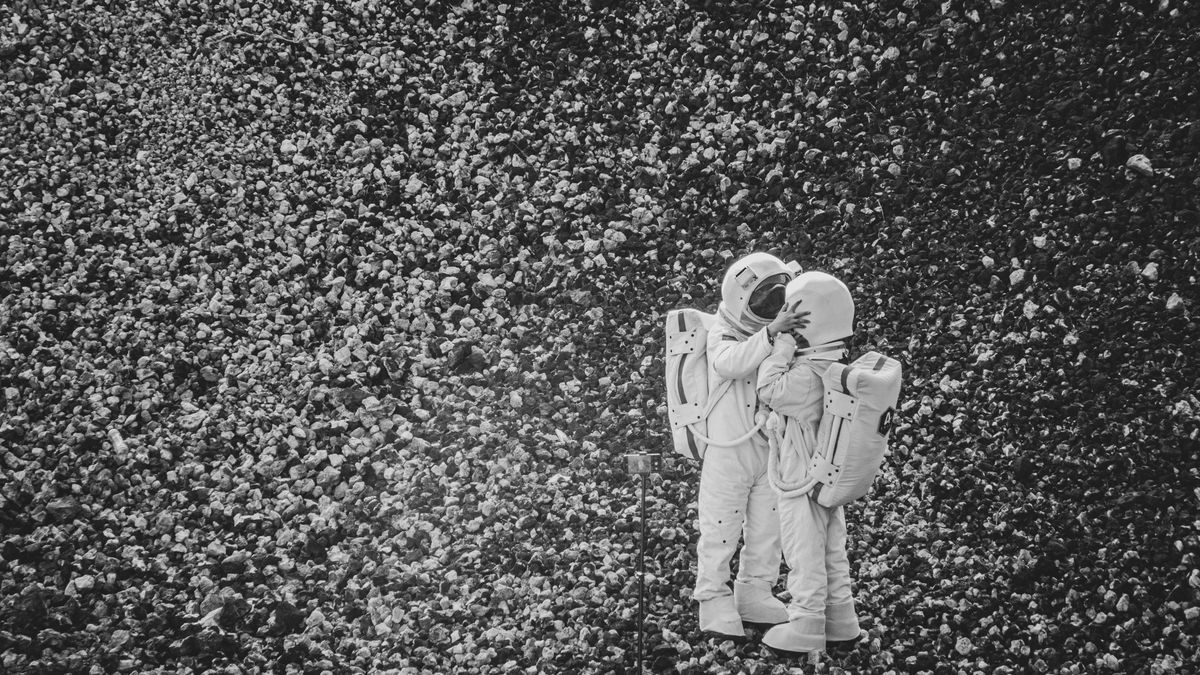This text was initially revealed at The Conversation. The publication contributed the article to House.com’s Expert Voices: Op-Ed & Insights.
Simon Dubé (opens in new tab), PhD candidate, Psychology of Human Sexuality, Erobotics & House Sexology, Concordia College
Judith Lapierre (opens in new tab), Professor, College of Nursing Science, Université Laval
Maria Santaguida (opens in new tab), PhD Candidate in Psychology, Concordia College
A brand new daybreak of space exploration is upon us. NASA goals to land the first woman and person of color on the moon by the top of 2025, and ship a crew on a year-and-a-half lengthy mission to Mars within the 2030s.
To make sure a secure and pleasurable journey to the ultimate frontier, nationwide companies comparable to NASA and personal firms comparable to SpaceX should tackle each the technical and human elements related to working and dwelling in space. But, the realities of sexuality and intimacy in space are largely omitted.
How will folks be capable of reside for extended intervals of time within the remoted, confined and excessive situations of spacecraft and different planets? How will folks navigate falling in love, having intercourse and starting and ending relationships underneath such situations? How will folks take care of the stress, restricted selection of intimate companions and points associated to consent? And the way will sexual harassment or assault be prevented or addressed?
On Oct. 15, 2017, #MeToo ushered in a worldwide motion in opposition to sexual harassment and assault. As researchers exploring human elements in space and space sexology — the research of intimacy and sexuality away from Earth — we argue that it’s time to plan for the way forward for #MeToo in space.
Associated: Love and rockets: We need to figure out how to have sex in space for human survival and well-being
Sexual assault and space analysis
On Dec. 3, 1999, Judith Lapierre, a Canadian nurse and social drugs researcher, launched into a 110-day Mars simulation experiment aboard a Mir House Station reproduction in Moscow. Lapierre was the one girl in an eight-member crew.
One month into the research, the Russian chief commander mentioned operating an experiment the place Lapierre can be handled because the crew’s sexual object. On New 12 months’s Eve, he acknowledged it was time to “do the experiment,” and forcibly grabbed and kissed Lapierre (opens in new tab) regardless of her repeated requests to cease.
Lapierre notified the Canadian Space Agency and knowledgeable her Austrian crew commander, who immediately demanded action (opens in new tab) from the native and worldwide administration.
When interviewed by the media after the experiment, Lapierre opened up about her expectations of a secure, harassment-free and violence-free working atmosphere. But some Russian information shops blamed and misrepresented her as depressed and the reason for unrelated issues, together with a physical altercation between Russian crew members (opens in new tab).
The aggression in the course of the simulation experiment was diminished to cultural variations. And since then, Lapierre’s time within the space sector became an uphill battle as a result of she spoke out.
As she describes in Rudolph and Werner Herzog’s 2022 movie “Last Exit: Space:”
“When that mission completed, it actually influenced my complete profession as a result of I assumed this is able to be the beginning of my analysis venture with the space company or the beginning of my subject of labor, however I used to be simply completely pushed out of the system.”
Different analysis contexts
Lapierre isn’t alone. Sexual harassment has additionally occurred in different contexts much like the acute situations of precise and simulated space environments.
A 2022 report (opens in new tab) commissioned by the Nationwide Science Basis (NSF) confirmed that out of the 290 feminine respondents, 72% and 47% agreed that sexual harassment and sexual assault, respectively, are an issue in america Antarctic Program (USAP). As one of many survivors reported:
“The NSF report highlights the dearth of ample prevention, reporting and response programs, in addition to the dearth of help for victim-survivors and the dearth of belief in human assets and USAP management. And solely a minority of the management agreed that sexual harassment (40 per cent) and sexual assault (23 per cent) are an issue within the USAP.”
This isn’t restricted to the USAP. In 2021, workers of the aerospace firms Blue Origin and SpaceX got here ahead with an alarming array of sexual harassment and misconduct allegations.
In an open essay (opens in new tab), a gaggle of 21 present and former workers of Blue Origin denounced a sexist work tradition, inappropriate behaviors towards ladies and circumstances of sexual harassment by senior leaders.
No finish in sight?
For humankind to securely take its subsequent steps into the universe, the tradition of space exploration should change.
These harrowing occasions name for nationwide companies and personal space firms to undertake a proactive stance in opposition to sexual harassment and assault. NASA and different space organizations should transcend implementing basic anti-harassment policies (opens in new tab). They need to dedicate the required assets to place in place correct prevention, reporting and response infrastructures, together with the help and safety of victim-survivors.
This may increasingly embrace the creation of separate oversight entities composed of sexologists and certified well being and psychosocial professionals. This may increasingly additionally embrace investing in the study of human relationships and sexual health in space.
Sufferer-survivors have to be a part of the dialog and options, each step of the best way. That is important to make sure the security of Earth-based and space environments, and ethically conduct much-needed scientific analysis on human spacelife.
MeToo taught us that collective motion is highly effective. And within the words of Lapierre (opens in new tab):
“It’s time, greater than ever, to satisfy the true challenges of space exploration, with honesty, transparency, and by recognizing that Earth’s unacceptable behaviors are additionally House’s unacceptable behaviors for a spacefaring civilization.”
This text is republished from The Conversation (opens in new tab) underneath a Inventive Commons license. Learn the original article (opens in new tab).
Comply with the entire Skilled Voices points and debates — and develop into a part of the dialogue — on Fb and Twitter. The views expressed are these of the writer and don’t essentially mirror the views of the writer.




